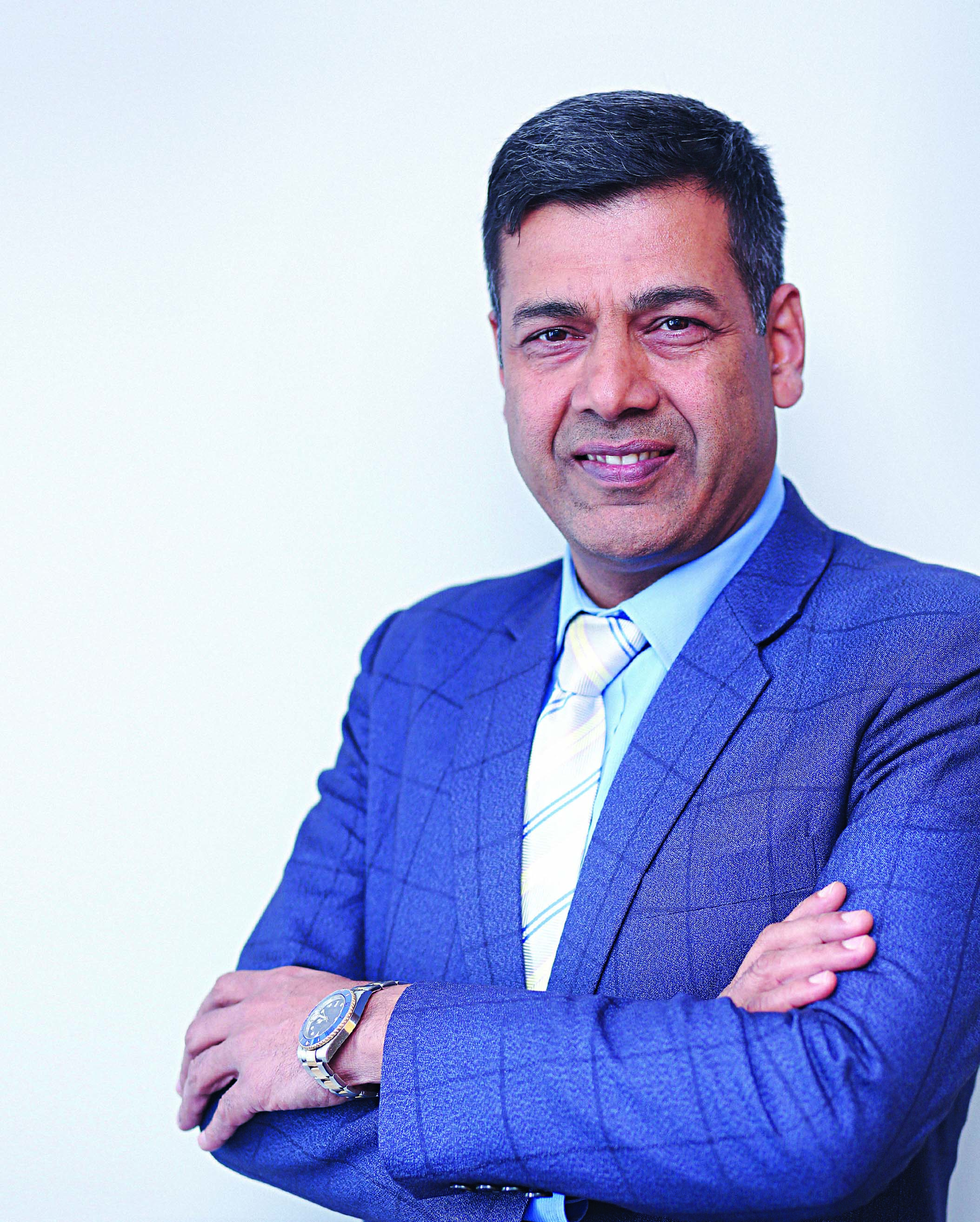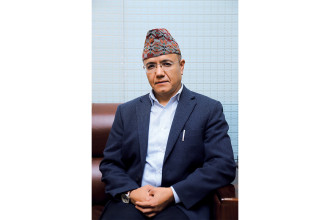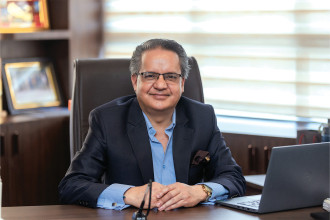
Dr. Harish Neupane is an NMC registered doctor and has been working as a general surgeon for more than two decades in different hospitals. He completed his MBBS from Tribhuwan University in 1995, Masters degree in Surgery (MS) from Punjab University, Lahore, Pakistan in 1998, and also has done Fellow in International College of Surgeons (FICS). Besides working as a general surgeon, Dr. Neupane has also been teaching at undergraduate and postgraduate levels for 17 years.
Since December 2007, he is the Chairman and Managing Director of Chitwan Medical College Teaching Hospital (CMCTH) which was established with a motto to fulfil the needs of the people seeking quality education and services in health at affordable prices. Dibesh Dangol of B360˚ interviewed Dr. Neupane to know about his thoughts on leadership and how he brings these into his work at CMCTH.
What is leadership according to you? What are the most important values a leader should demonstrate?
Leadership is a quality through which the leader can manage the activities of the company or organisation. The leader has to be able to manage few of the things that are optimistic as well as pessimistic in nature. In the context of Nepal, a leader has to be able to tackle mostly the negative thoughts because nowadays most Nepali workers tend to have a pessimistic approach due to the condition of the country.
A leader has to be punctual and disciplined. A leader should have an idol status so that everyone working under and around him/her respects the leader and is comfortable to follow his/her leadership guidance. If s/he doesn’t respect these values or isn’t sincere to the organisation, then that person is not taken as a leader.
How is being a leader different to being a boss?
I feel leadership, teamwork and success go hand-in-hand. When the targeted goals are achieved by my team and team members are happy, it reflects on my success as a leader.[/su_pullquote]
A boss and a leader are slightly different people. A leader doesn’t have to be a boss in order to manage personnel. S/he needs to have leadership skills that will inspire his/her personnel to innovate. Anyone can be a boss. If you are running a company or are the owner of the company, you are a boss. No managerial or leadership skills are required to be just a boss.
Leaders can naturally be bosses but only few bosses can become leaders. A boss can learn many things from a leader. A boss in actuality should be a boss but also a leader. To be a real boss, the individual should have a firm grip on leadership as well as ownership of the organisation.
Describe a time you took a leadership position even when you did not have the title of leader.
I have never felt that I wasn’t a leader in any point of my life. In my school days, I took leadership in every role assigned to me by my teachers and I also used to help my schoolmates if they were having problems with their studies or activities. Fast-forward my life, when I became a surgeon, even at that time I felt I was a leader amongst my colleagues. As I am currently running Chitwan Medical College Teaching Hospital as Chairman and Managing Director, I am the leader as well as the owner of the institution.
How do you motivate your team?
People have complimented me saying I am a hard-worker, not just as a leader but also as a boss. So when my staff see me, they always find me working hard which sends positive vibes across the institution and motivates them. Another thing is that whatever knowledge I have, personal or professional, I always share it with my team members which has led me to gain their trust.
Also, before I take any new initiative, I always spend my time planning. Though to some people it might be annoying, but because of planning I have reached where I am now and it is also one of my success mantras.Witnessing my plans turn into operation successfully motivates my team.
Earlier, I was just a surgeon. I got involved in the managerial and leadership aspects of the medical field only in the later days. My students and team members see this successful transformation in me as a motivation for them. Also, whatever the hospital or medical college earns, we always try to contribute some amount to the people in need through various charitable programs.
Lastly, we always train our doctors to learn the latest techniques and practices through faculty development programs which have motivated them and made them loyal to our institution. These points are how I motivate not just my team, staff and students, but also patients and their families who enter CMCTH.
What is the most difficult part of being a leader?
The difficulties that leaders of companies and organisations in foreign countries have to bear are totally different from those in Nepal. In the context of our country, especially in heath based institutions, it is very difficult to manage the constant political and local interferences. Additionally, there are other difficulties regarding operations of the institution but these are easily manage.
How do you measure success as a leader?
I feel leadership, teamwork and success go hand-in-hand. When the targeted goals are achieved by my team and team members are happy, it reflects on my success as a leader.
How do you delegate responsibilities?
I give responsibilities to each member according to their strengths. If a new member has joined recently, I ask them about their strengths, give them thorough orientation about their work, responsibilities and my expectations from them, and only then assign them the work.
The same approach is at CMCTH where we have a hierarchy system. There are different departments where we assign workers according to their strength and responsibilities.
What is the most significant change you brought to the organisation?
CMCTH was established according to my vision. When I was working in another hospital, I had a thought of making a change in the country by giving a good medical education and international services at an affordable rate. Till now we have had 2,200 students enrolled in our medical college and have employed 1,500 people in our hospital.If CMCTH hadn’t been established then, those students would have gone to foreign countries for studies, and along with that the money they would have spent for their education. Also, for their professional career after completing their education, they would have stayed there or proceeded to other countries.
Besides this, we deal with around 2,000 patients per day who are getting treatment at just Rs. 50 which is very affordable for all Nepali citizens without compromising on the standard of health services.
So in a way, through establishing CMCTH, I have not just brought a significant change in CMCTH, but also in the country.





-(1)-1752214965.jpg)